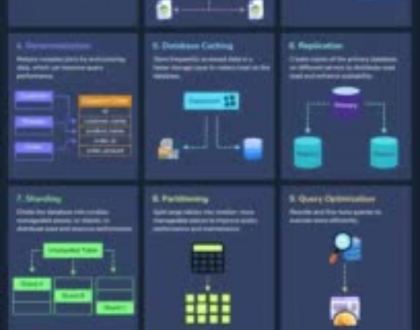Migrating from Older ASP.NET Versions to the Latest ASP.NET Core

A well-known framework for creating web applications, ASP.NET has seen various modifications over the years, with ASP.NET Core being the most recent and cutting-edge one. There are some significant differences and things to think about if you want to update an older ASP.NET application to ASP.NET Core.
First off, ASP.NET Core may be used on Windows, Linux, and macOS because it is cross-platform. This is a substantial change from earlier iterations of ASP.NET, which were primarily intended for servers running Windows.
Second, the.NET Core runtime, a compact and modular variant of the.NET Framework, is used to create ASP.NET Core. To ensure compatibility with the new runtime, you might need to make changes to your code and dependencies.
Finally, as compared to earlier versions, ASP.NET Core has a distinct project structure and deployment methodology. You must become familiar with the new hosting models, middleware pipeline, and project templates.
All things considered, upgrading from a previous version of ASP.NET to ASP.NET Core involves considerable planning and thought. To choose the optimal course of action, you must assess your current codebase, dependencies, and deployment infrastructure. The advantages of switching to ASP.NET Core, however, can be substantial and include enhanced performance, scalability, and development productivity.
ASP.NET
ASP.NET is a popular web application framework that has gone through several iterations, with ASP.NET Core being the latest and most modern version. When migrating from older ASP.NET versions to ASP.NET Core, understanding the differences in project structure, deployment, and compatibility with the .NET Core runtime is important. ASP.NET Core is cross-platform and built using the .NET Core runtime, which requires changes to code and dependencies for compatibility. However, the benefits of upgrading to ASP.NET Core can be significant, including improved performance, scalability, and developer productivity.
ASP.NET Core
ASP.NET Core plays a significant role in the migration process from older ASP.NET versions to the latest ASP.NET Core framework. ASP.NET Core is a modern and open-source web application framework that supports both Windows and non-Windows platforms, making it a cross-platform successor to the original ASP.NET framework. It provides a modular HTTP request pipeline, integrated dependency injection, and a unified MVC and Web API framework, which makes it easy to develop scalable, high-performance web applications that can run on a variety of platforms. Additionally, ASP.NET Core supports cloud-based hosting providers like Microsoft Azure, Amazon Web Services, and Google Cloud Platform, making it an ideal choice for building cloud-native applications. In migrating from older ASP.NET versions to the latest ASP.NET Core framework, understanding the differences in project structure, deployment, and compatibility with the .NET Core runtime is important. However, the benefits of upgrading to ASP.NET Core can be significant, including improved performance, scalability, and developer productivity.
Migration
Migration is a critical aspect of migrating from older ASP.NET versions to the latest ASP.NET Core framework. Migration involves upgrading an existing web application built on older versions of ASP.NET to the latest ASP.NET Core framework. This process requires careful planning and consideration, including evaluating the existing codebase, dependencies, and deployment infrastructure to determine the best approach. Some of the key considerations include understanding the differences in project structure, deployment, and compatibility with the .NET Core runtime. By migrating to the latest ASP.NET Core framework, developers can benefit from improved performance, scalability, and developer productivity.
Project structure
Project structure is an important aspect to consider when migrating from older ASP.NET versions to the latest ASP.NET Core framework. ASP.NET Core has a different project structure compared to the previous versions, and understanding these differences is critical during the migration process. ASP.NET Core projects typically have a more streamlined and modular structure, which promotes better separation of concerns and makes it easier to develop, test, and deploy applications. Some of the key differences in the project structure include a new folder structure, support for multiple target frameworks, and the use of NuGet packages for managing dependencies. By understanding and adapting to the new project structure, developers can benefit from improved maintainability, scalability, and performance in their applications.
Scalability
Scalability is an important factor to consider when migrating from older ASP.NET versions to the latest ASP.NET Core framework. ASP.NET Core provides improved scalability features that can help applications handle increased traffic, user loads, and data volumes. These features include a modular HTTP request pipeline, which allows developers to easily add or remove components as needed, as well as built-in support for distributed caching, which can help improve application performance and reduce the load on servers. Additionally, ASP.NET Core supports cloud-based hosting providers like Microsoft Azure, Amazon Web Services, and Google Cloud Platform, which can provide auto-scaling capabilities, allowing applications to automatically scale up or down based on demand. By leveraging the scalability features of ASP.NET Core, developers can ensure that their applications can handle increased traffic and provide a better user experience.
Recommended Posts

12 Proven Ways to Improve Database Performance
April 29, 2025


